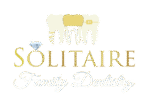Pregnancy and Dental health

Dental health comprises the health of your teeth, gums and oral cavity. It’s an important part of overall well-being. And for pregnant ladies That’s one A very important part of prenatal care (the medical care you receive during pregnancy) as many anatomical and physiological changes happen. Being pregnant increases your risk of oral health problems, and these problems can affect your pregnancy. Pregnancy does not cause poor oral health and damage to teeth! But changes in lifestyle, eating habits can increase your risk of dental problems during pregnancy. Research has shown a link between gum disease and premature aging. A preterm birth is a birth that occurs too soon, before 37 weeks pregnancy Completely preterm infants are more likely to be healthy at birth There may be problems later in life than when babies born full term. Take care of the mouth, teeth and gums during pregnancy It helps you have a healthy pregnancy and give birth to a healthy baby.

Changes during Pregnancy related to oral health:
Pregnancy is a temporary, natural physiological process Changes in women’s physical structure, hormone levels, metabolic systems, and immune systems. Due to cravings in pregnancy, a change in eating habits with an increased consumption of carbohydrates may be noticed. In the first trimester, increased vomiting may be noticed due to morning sickness, a decrease in salivary pH and buffer capacity, and alpha-amylase protein is increased in the saliva, which changes the constitution of microorganisms in the saliva and reduces its PH. IgA increases further, leading to reduced pH, and salivary flow is increased: A change in osteogeny levels and progesterone makes the mouth absorbent and decreases the host’s immune system, which results in
increasing the chance of a dental infection. It was observed that Tooth decay and gingivitis occurred 1.97 times and 1.81 times more It is more frequent in non-pregnant women than in pregnant women
Signs and symptoms of dental problems include:
1. Bad breath:
Poor oral hygiene, an increased risk of cavities, and gum diseases can contribute to bad breath.
2. Loose teeth:
Increased levels of progesterone and osteogeny can affect the ligaments and bone-supporting teeth, leading to a feeling of looseness of teeth.
3. Mouth sores or lumps on the gums:
The benign interdental papilla growth, which can develop on the gums, between the teeth and on the labial surface due to hormonal changes. They are typically painless but may cause discomfort or bleeding. They can appear in the third trimester.
4. Due to hormonal changes, new spaces can be seen between your teeth.
5. Receding gums
Pre-existing chronic inflammation in the gums can worsen, leading to gum disease.
To recede, the tooth contacts and exposes more of its root.
6. Swollen, red or bleeding gums Hormonal changes, such as increased osteogeny levels, can lead to increased capillary blow flow to the gums, causing them to be swollen, red and more prone to bleeding, especially during brushing and flossing.
7. Toothache or sensitivity
Changes in diet with increased consumption of carbohydrates and oral intake Hygiene habits increase the risk of cavities. If you have any pain or swelling, call your dentist Doctor right away If you have a dental infection, prompt treatment is essential to prevent your dental problems Baby, Are dental X-rays safe during pregnancy? Yes. X-rays are part of regular dental care. An X-ray is a medical test An image is created on film using radiation. Radiation is a type of energy that can harm health. Energy that can harm your health if you are exposed to too much. Furthermore, dental x-rays are focused away from the fetus, and hence are not harmful. lead apron covers the abdomen, so the fetes is protected with an extra layer. Dental X-rays are safe during pregnancy.
1. Digital sensors for taking x-rays must be preferred over conventional films. They use very little radiation.
2. If film is used for intraoral. E and F speed film are preferred over D speed film to reduce exposure.
3. If film is used rather than digital for panaromic and CBCT, high speed film of 400 must be used.
4. X-ray equipment must be calibrated according to age and size of the patient and tooth location to reduce further exposure. rectangular collimator is preferred.
5. Between 60 and 80 kV, the x-ray units must be operated. Intraoral Sensor holders with x-ray beam guiding devices must be used.
6. It is preferable to avoid CBCT. When absolutely needed, use the smallest FOV. It’s important to inform your dentist if you are pregnant or trying to get pregnant. Dentists can try to form a treatment plan based on the previously available x-rays to avoid further taking of x-rays for diagnosis.
Care for pregnant dental personnel while handling x-rays:
Limit the radiation exposure as much as possible. Use lead aprons and thyroid collars while shooting the x-rays. When barrier is not available, stand at least 2 feet away from the primary beam source path. Use a Decimeter badge
Care during pregnancy:
Brushing at least twice a day and flossing once a day are recommended antimicrobial mouth rinse must be followed to reduce oral health problems which arise during pregnancy. If you need a professional teeth cleaning, don’t skip it you are pregnant. Now more than ever, dental cleanings are particularly important. gum disease that doesn’t get better may need to be treated by a dental professional. Treatments may include antibiotics and excision of affected tissue.


